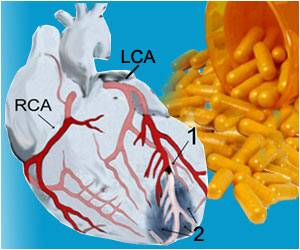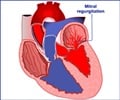Researchers at McMaster University have found new evidence that suggests patients with a history of adverse reaction to the blood thinner heparin may be ready for urgent heart surgery sooner with a combination of therapeutic plasma exchange and appropriate blood screenings.

Many patients taking blood thinners will eventually require some form of heart surgery and will need large quantities of heparin during the surgery to prevent clots. Some patients who have already taken heparin develop antibodies against it, activating platelets and unexpectedly forming clots. This condition is called heparin-induced thrombocytopenia (HIT).
When patients with a history of HIT require urgent heart surgery, physicians must test for the presence of HIT antibodies to see whether the patient can be re-exposed to heparin during the procedure. While HIT antibodies generally go away naturally within several weeks or a few months, levels can sometimes remain high, requiring physicians to take measures to lower them before surgery. To lower these antibodies quickly, a procedure called therapeutic plasma exchange (TPE) is used. Here blood is taken from the patient, plasma is removed, and blood and replacement fluids are returned to the patient's body.
Hematologists use two types of tests to measure HIT antibodies. These include a functional platelet serotonin-release assay and a highly sensitive enzyme-immunoassay. While the functional assay measures release of serotonin, a direct marker of platelet activation, the immunoassay casts a wider net, detecting both clinically significant and insignificant levels of HIT antibodies. The immunoassay is the more widely used of the two tests. If it indicates the presence of HIT antibodies in a patient, surgery is usually delayed or plasma exchange must be performed.
While practitioners have historically understood a clear relationship between the two tests, new research led by Warkentin suggests that the functional assay may show low HIT antibody levels while at the same time an immunoassay result is indicating high levels.
This evidence is summarized in a new case report in which a 76-year-old female with kidney cancer and previous HIT required urgent cardiac surgery to remove a tumor that had spread to her heart. After both her initial functional and immunoassays indicated the presence of HIT antibodies, her doctors decided against surgery. But after repeated TPE, the research team performed both the functional and immunoassays on the patient again and this time observed strikingly different results.
Advertisement
To test the idea and better understand, Warkentin's team developed a model comparing functional and immunoassay results among 15 HIT blood samples, which were diluted and tested with both assays to mimic the effects of repeated TPE. The researchers observed that HIT antibody levels as measured by the functional assay decreased rather quickly, while the immunoassay continued to indicate high levels. This suggests that the sensitivity of the immunoassay may overestimate HIT antibody levels in patients.
Advertisement
"Based on these findings, physicians should consider utilizing both of these tests when preparing a patient with a history of HIT for urgent heart surgery, considering the functional assay result as the stronger indicator of a patient's readiness," said Warkentin. "For these patients, TPE can be a useful option to help rapidly reduce their remaining HIT antibody levels, minimize their risk of developing clots, and get them into the operating room sooner."
Source-Eurekalert














